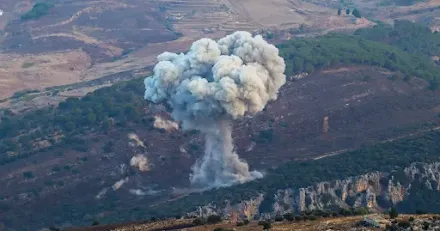
1. How the Israel-Lebanon Conflict Started
The most recent flare-up between Israel and Lebanon is rooted in long-standing tensions between Israel and Hezbollah, a Lebanese militant group backed by Iran. The conflict, which intensified in September 2024, traces its origins to the broader Israel-Hamas War that erupted in October 2023. Hezbollah, an ally of Hamas, has engaged in skirmishes with Israel intermittently over the years, often tied to broader geopolitical struggles in the Middle East. The September 2024 conflict specifically escalated when Israel launched a series of airstrikes in response to Hezbollah's attacks from southern Lebanon, leading to over 500 casualties in Lebanon(
).
2. Global Impact of the Conflict
The intensification of violence between Israel and Hezbollah is not just a regional issue; it has far-reaching global implications:
Geopolitical Tensions: The conflict threatens to draw in major global powers like the U.S. and Iran. Both nations have vested interests in the region, with the U.S. supporting Israel and Iran backing Hezbollah. This heightens the risk of a broader regional war that could destabilize the Middle East.
Humanitarian Crisis: The conflict has exacerbated the humanitarian situation in Lebanon, already fragile due to economic crises and the aftermath of the 2020 Beirut explosion. Thousands of civilians are displaced, with increasing pressure on international organizations for aid.
Global Issues- Energy Markets: Lebanon’s location near key maritime trade routes, including oil transit points, makes the conflict a potential disruptor of global energy supplies. This could lead to spikes in oil prices, affecting global markets.
Diplomatic Fallout: The conflict has strained relations between Israel and several Arab nations, particularly those involved in recent peace talks, like the Abraham Accords signatories. It has also put pressure on European and U.S. diplomats to find a ceasefire and a sustainable political solution.
3. Next Steps and Potential Resolutions
a. Immediate Ceasefire and Diplomacy
The first and most pressing step is the negotiation of an immediate ceasefire. The UN and key international players such as the United States, France, and Russia are expected to broker peace talks. Historically, ceasefires have provided temporary relief, but without addressing the root causes, the situation could quickly reignite(
).
b. Addressing Iran’s Influence
Iran’s role in the conflict through its support of Hezbollah will be a critical focus of diplomatic efforts. Reducing Iran’s involvement may require renegotiating nuclear deals or implementing stricter sanctions to curb its ability to fund and arm Hezbollah. However, this is a delicate balancing act that could either lead to de-escalation or provoke further tensions(
).
c. Rebuilding Lebanon’s Fragile State
Long-term peace will depend on stabilizing Lebanon, which is in economic freefall. International aid, debt relief, and economic reforms will be necessary to rebuild infrastructure, restore services, and reduce Hezbollah's influence by improving governance. Without these measures, Hezbollah may continue to fill the governance void, further entrenching its power.
d. International Peacekeeping
Deploying international peacekeeping forces along the Blue Line (the border between Israel and Lebanon) could serve as a buffer to prevent further military confrontations. However, this would require significant international commitment and consensus in the UN Security Council.
e. Humanitarian Aid
The international community must also step up humanitarian aid to address the worsening refugee crisis. This includes providing shelter, medical supplies, and food to the displaced populations within Lebanon and supporting Lebanese host communities already struggling with economic burdens.
Conclusion
The Israel-Lebanon conflict in 2024 is a symptom of deep-rooted geopolitical tensions and sectarian divides in the region. While ceasefire efforts may provide temporary relief, long-term peace will depend on addressing broader issues like Iran’s involvement, Lebanon’s political and economic instability, and the international community’s ability to broker a sustainable solution. If left unresolved, the conflict risks escalating into a regional war, with devastating humanitarian and economic consequences globally.












